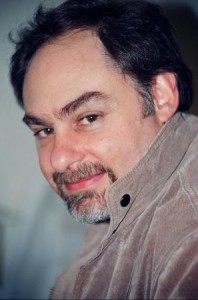
A. R. Silverberry, Author of The Stream
Using a Writing Journal
When I heard that John Steinbeck kept a writer’s journal I thought I’d better give it a whirl. It’s turned out to be one of the most useful tools in my arsenal. It helps me stay focused on whatever project I’m working on, experiment with different passages, brainstorm ideas, and sort out story- doubts and self-doubts. It helps me keep going, even when I’ve stalled and I’m ready to abandon the whole vocation and take up golf. It’s also useful to go back through the journals and re-read what I was thinking about at various points in time.
For each piece I’m working on, whether it’s a short story or a novel, I start a journal in a separate folder for that project. This helps me stay focused on that project and find within its pages ideas, explorations, or solutions as needed. I recently validated this approach. I had been working intensely on book three of a sci-fi trilogy but set it aside mid-May to work on three short stories. These got completed in 7/31. When I went back to the trilogy I felt quite distant from it. I knew I was just starting Act II in the plot, but the thousands of ideas and questions that were percolating in my head had long since flown away like a flock of migrating birds. A quick review of the journal helped me get back on track. By reading earlier entries, I was able to find where I was planning to go with a particular character or conflict.
My father, who penned plays and screenplays, used to talk about the tyranny of the paper. Of course, this was in the days of typewriters or writing longhand. What he meant was that there was something intimidating about the stark, white, unblemished page. It begs us not to mar it. And if you have a few lines or a passage written there, it can also be difficult to add anything. It’s almost as if the words are set in stone or are sacred—anything else you add better be good, or pack it up. My father’s solution was to crumple a paper bag or something else that didn’t matter and write on that. (I once saw a poem he wrote on a cocktail napkin.) You can even scribble on it first. The crumpling and scribbling sends a great message to your brain: Relax, there’s nothing at stake here; this is something you can toss in the trash.
Even on a computer screen, I often experience the tyranny of the “page.” One of my favorite ways to deal with it is to go to my journal and experiment there. I feel totally liberated to write whatever I want, and to write badly. No one ever sees it, so what does it matter? Freed up mentally, I often come up with just what I need.
Every novel has one or two sections that I call my Waterloo passages. Gnarly, messy, scary, these sections torture me because I’m not sure how to write them or make them work. Reading in prior journals helps. I can quickly see that this is a normal part of the creative process and that I always get to the other side it!
Someday I’ll share some real life examples from my journals. But I thought I’d post this as an introduction. A final thought. Sometimes I use journals to capture something I’ve seen or heard. Here’s an entry from the journal I kept while writing my novel, The Stream.
11-27-13:
8:08 PM:
Saw this quote from Ralph Waldo Emerson: “Live in the sunshine, swim the sea, drink the wild air.”
Leave a Comment! I’d love to hear how you use a writing journal.
Happy writing everyone!


